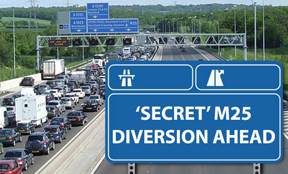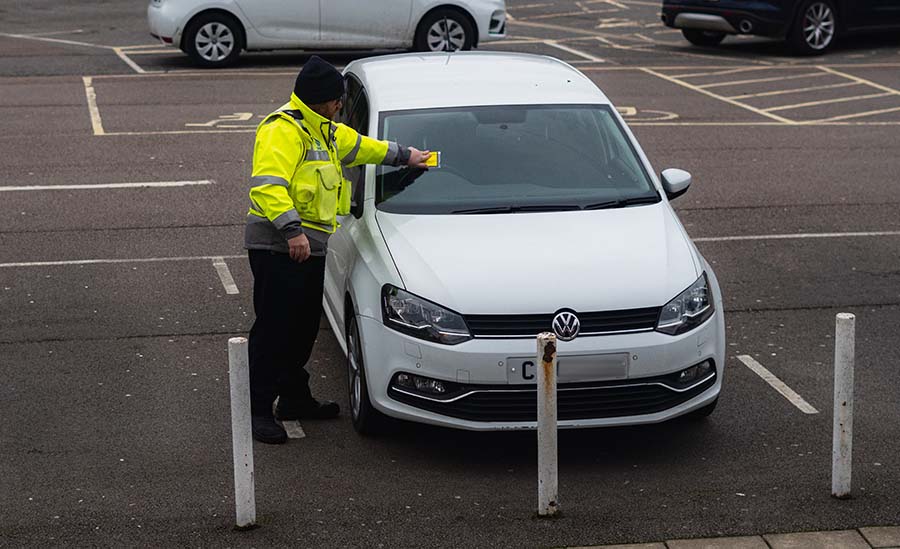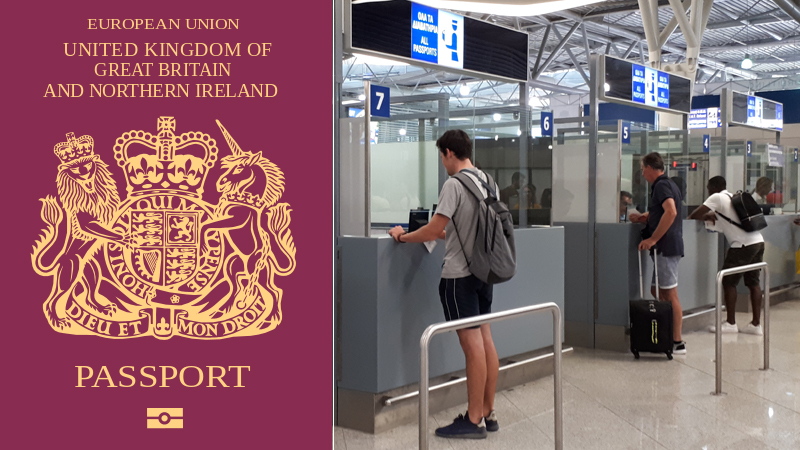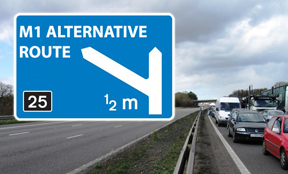
Have you been receiving parking tickets and fines for a vehicle you do not own? It's possible that a car that's not yours has been registered to your name and address leaving you open to fraud and fines that are nothing to do with you. Here motoring journalist and expert Pete Barden explains what to do to get the situation sorted out.
 Are you receiving tickets for a car you
don't own? (Credit: Caspar Rae/Unsplash)
Are you receiving tickets for a car you
don't own? (Credit: Caspar Rae/Unsplash)
-
TABLE OF CONTENTS
-
Can people simply register a car in my name and address?
-
Why would someone register a car I don't own to my address?
-
Should I phone the police?
-
How to report a car that is fraudulently registered to me?
-
Should I pay any demands for fines I receive?
-
Can I open letters not addressed to me, to check out vehicle fraud?
Can anyone register a car in my name and address?
Yes, it is possible for someone to buy a vehicle then register it to a third-party name and address without the person's knowledge, initially.
By downloading a V62 form from the DVLA, anyone can register any vehicle in the name of a third-party for a fee of around £25.
Why would someone register a car I don't own to my address?
The first time many people know that a vehicle has been registered in their name is when they receive a parking fine for example, or a demand for other types of unpaid penalties.
The advantage for the criminal is that any illegal activity the vehicle is used for, will come back to the illegitimate address they have registered it at - and not them.
This can be extremely concerning for people on the receiving end of the demands. But what can they do?
Should I phone the police?
It is unlikely that the police will be able to help you at this stage, as any issue will likely be a civil matter and not a criminal offence in most cases. If a serious crime has been committed - it is likely the police will come calling on you.
If you do phone the police, do not call in the emergency number, you should call on the non-emergency 101 number or online here.
How to report a car that is fraudulently registered to me?
If you are getting letters and fines relating to a vehicle you don't own (see section further down about opening mail not addressed to you), you should contact the DVLA and ask for proof to show you are not the owner.
Give them all the information you have about the car registered to your home. This should include the number plate and make and model. You should find this correspondence that has been sent to you about the vehicle. Send copies of such fines, but keep the originals for your records.
The DVLA will receive your request to make sure the car is not associated with your address and update its records within four weeks. You will be sent a letter to confirm this, which you can then forward a copy to anyone demanding payment from you.
Confirming you are not the owner with the DVLA should stop any further fines or other demands arriving, but keep the original letter confirming the vehicle is not registered to you, just in case some are still in the system.
Where should I send my letter to the DVLA?
Send the letter to:
DVLA
Swansea
SA99 1ZZ
Subscribe for free motoring and travel news here - support independent journalism
Should I pay any demands for fines I receive?
You should not pay any demands for money before telling the debtor that you are not the registered keeper of the vehicle, as you will find it difficult to recover this at a later date.
Can I open letters that come to my home but are not addressed to me to check out vehicle fraud?
Often, if a person is committing some sort of vehicle fraud based on your address, letters will start arriving for a person who does not live at that address. If you cannot find a valid reason for this - such as the person being a previous resident - it could be a sign that you should be concerned.
However, opening mail addressed to someone else - even if it is your home or business - could result in YOU getting in serious trouble. The UK's Postal Services Act 2000 section 84 says: "A person commits an offence if, without reasonable excuse, he - (a)intentionally delays or opens a postal packet in the course of its transmission by post, or (b) intentionally opens a mail-bag."
Additionally, it states: "A person commits an offence if, intending to act to a person’s detriment and without reasonable excuse, he opens a postal packet which he knows or reasonably suspects has been incorrectly delivered to him."
Talking about penalties, the act states: "A person who commits an offence under subsection (1) or (3) shall be liable on summary conviction to a fine not exceeding level 5 on the standard scale or to imprisonment for a term not exceeding six months or to both."
Look out for return addresses on the envelope - such as the DVLA - and phone the organisation about the letters and explain your position.
Latest motoring news and guides
Take a look at more of our top motoring-related content here...
-
CAR TAX SHOCK: How much is my car tax going to go up by?
-
CAN I STILL DRIVE?: My driving licence has expired - can I keep driving while I wait for a new one?
-
CHILLING: New AI speed cameras have arrived - here's what they can see in your car?
-
DRIVERS IN 20MPH PERIL: How fast in a 20mph zone will get a speeding ticket in London
-
TOP EVS FOR BRITS: What is the most popular electric car (EV) for UK buyers 2022?
-
TESTING TIMES: Can I book cancelled driving tests to beat the rush?
-
M25 JAM BUSTER: Are my sunglasses legal for driving - how to check instantly?
-
SECRET PARKING FINES: Secret parking offences you're committing but don't realise
-
SUNGLASSES SHOCK: Are my sunglasses legal for driving - how to check instantly?
-
NUMBER PLATES EXPLAINED: How old is a car by its number plate? Full list
-
SPEEDING TICKET CHECK: Will I always get a speeding ticket after being flashed
-
AVOID POINTS: Will I get a speed awareness course instead of points?
-
DRIVING ABROAD DOCUMENTS: Do I need an international driving permit for France, Spain, Greece and more
-
WHITE LINES EXPLAINED: What are the rules around double white lines and the risk of £1,000 fine?
-
BRUM: DEAL Do I pay the Birmingham Clean Air Zone at weekends?
-
GOT YOUR NUMBER: What does my driving licence number reveal about me?
-
FAKE COP SHOCK: How to spot a fake undercover police car
-
ELECTRIC LICENCE TO DRIVE: Do I need an electric car licence and driving test in the UK?
-
VAPE RULES: Can I vape in a car with kids in it?
-
LICENCE TIMES: When can I apply for a provisional licence?
-
E-SCOOTER LAWS: Are electric scooters Legal in the UK now? When is the law changing?
-
SLIDERS MUST-KNOW: Can I drive in sliders in the UK?
-
DOT CHECK: What are the black dots on my windscreen for?
-
CAR TRACKER: How can I find out who owns a car
-
CHARGE AND DRIVE: Electric car charging points at UK airports for public use - 2022
-
TYRE-CHECK TOOL: How old are my tyres - find out instantly here
-
CAR FUTURE: What happens to a car when the owner dies?
-
SPARE WHEEL RULES: How far and how fast can I drive on a space saver spare wheel
-
TICKET RISK: Can I be fined if the car park ticket machine is not working?
-
KM6 JAM BUSTER: Is the M6 Toll Road free in the evening and at weekends?
-
PAY OR NOT PAY: How much is the Tamar Bridge toll and when do I need to pay it?
Author: Pete Barden:
Twitter: @pete_barden
Pete Barden is a qualified journalist who has written and produced for publications including The Sun (thesun.co.uk), New Statesman Media Group, Whatcar? (Whatcar.com) Stuff Magazine (Stuff.tv), Fastcar Magazine (Fastcar.co.uk), Maxim Magazine and UK broadcast stations within the Heart network (Formerly GCAP). Pete specialises in motoring and travel content, along with news and production roles. You can find out more about Pete Barden on LinkedIn.











